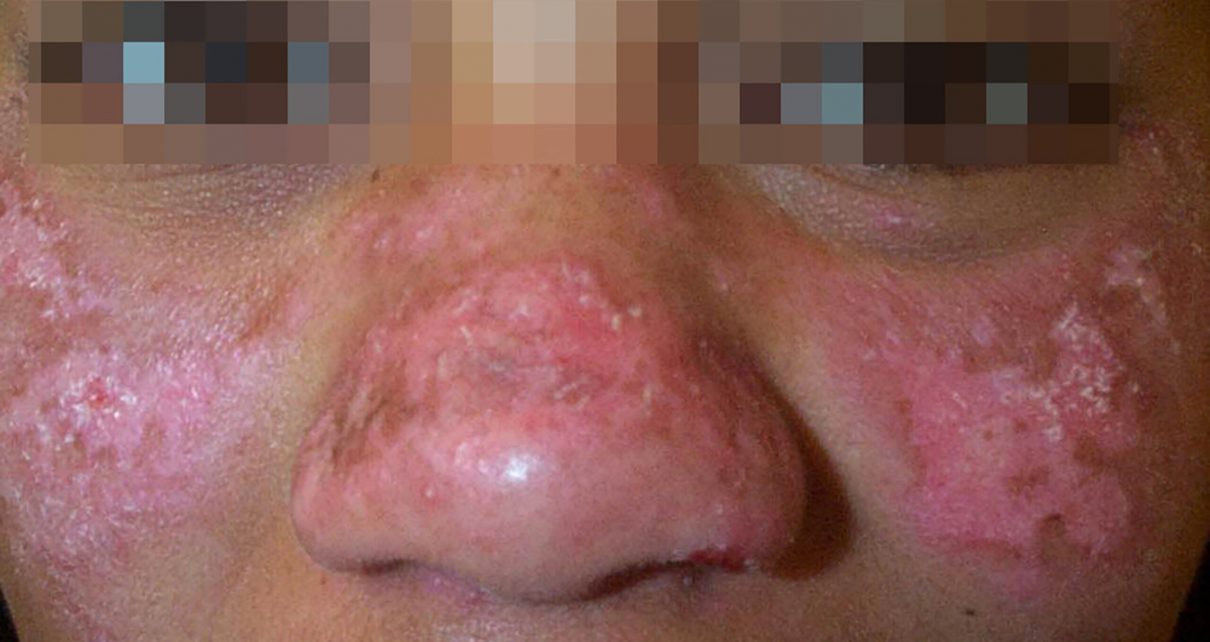On Tuesday, medical professionals in Lagos warned Nigerians not to overlook the warning signs of health issues, particularly lupus, but to promptly seek medical attention.
Systemic lupus erythematosus (SLE), often known as lupus, is an inflammatory condition brought on when the immune system assaults its own tissues.
Joints, skin, kidneys, blood cells, brain, heart, and lungs can all be impacted by lupus.
At an event in Lagos called “A Journey to a Lupus-free World,” which was put on by the Lupus Remedies Global Assistance Foundation (LUREG), experts called for more help for people with lupus.
Dr. Benjamen Olowojebutu, the Lagos State Chairman of the Nigeria Medical Association (NMA), warned Nigerians against the idea that those with autoimmune disorders are victims of spiritual assaults.
People ought to stop referring to folks with such illnesses as “Ogbanje” or “Emere,” according to Olowojebutu.
He recommended patients with autoimmune disorders get assistance.
The NMA boss urged early lupus diagnosis and detection in order to protect the patient before their condition deteriorates.
He said: “I want people to know that they need to seek help on time.
”It is not ‘Ogbanje’ or ‘Emere’, when you see such symptoms on your body; see the specialist on time and do not wait until it affects other organs of the body.
“People do not get doctors involved on time till cases worsen.
“Many will say they are drinking “agbo” (herbal mixtures) because the symptoms are not the same.”
He said: “I am glad that we are having lupus supporting system in LUREG now, where people can come and share their experiences.
“Here, people encountering the same health challenges will get encouraged.
“If anyone has any uncommon symptom that is not regular, such should see a specialist.
“It is not chemists or herbal medicine that will help them.
“They must see a doctor so that they can start getting help and for support on time.”
He said that people under the age of 16 had a higher prevalence of chronic lupus.
Parents and caregivers were urged by Olowojebutu to do more to uplift patients and foster a welcoming environment for them.
“Support is very key. Once the parents have lupus, their children can have a neonatal autoimmune disease.
“It just affects the child and such becomes hypertensive at a very early age so they need a lot of support.
“They need a lot of counselling because it can lead to depression.
“In such situations, they need a functional support system, adequate information, adequate nutrition and support from care givers and family.
“Families should not call them unusual names and the government should support them with good laws because they are going through a lot,” he said.
Olowojebutu advised the nation and all communities to take special recognition of people with autoimmune diseases, saying “we must start looking for them to give required support.”
Dr. Henry Ekpenyong, Senior Registrar, Rheumatology Unit, Lagos State University Teaching Hospital (LASUTH), also spoke and mentioned that lupus symptoms included skin rash, typhoid malaria syndrome, pregnancy losses, and hair loss.
According to Ekpenyong, lupus can damage any organ in the body.
“You can have lupus manifest in any organ of the body from the hair, eyes, digestive systems and all.
“The onus lies on parents to observe the changes in their wards.
“The symptoms are slightly different with the paediatric SLE- those below 16 years old, even those in the neonatal period most times have blockage of the heart-it is a lupus symptom”.
Delivering a paper titled ‘Lupus a Long Disease, Treatment and Management at the forum, Dr Babatunde Oladayo, Senior Registrar Rheumatology, LASUTH, said that lupus disease had no cure and more severe with the blacks .
“Autoimmune diseases are more than 200. They can affect any part of the body.
“They are chronic diseases not acute diseases.
“Unfortunately, these diseases are lifelong diseases. The immune system that protects humans against diseases gets overpowered.
“Childhood lupus, paediatric lupus, symptoms are very intense in children, posing damaging effects.
“Systemic Lupus Erythematosus (SLE) affects women more than men, and those within the reproductive age group are the worst hit. The majority of patients are spotted from the puberty stage,” Olowojebutu said.
According to him, a recent study shows a new dimension that the disease is more severe in blacks.
“The cause of the disease is not known till now and it has no cure, with a wide range of manifestations,” he said.
The Director of the LUREG Support Foundation, Mrs. Olubukola Sanusi, earlier urged well-meaning Nigerians and the government to support lupus patients more.
“I am a champion of systemic lupus erythematosus-an inflammatory disease for 12 months, caused when the immune system attacks its own tissues, it has no cure.
“Lupus SLE can affect the joints, skin, kidneys, blood, cells, brain, heart and lungs.
“I have already given up, but thanks to those with lupus who pulled through and who are very close to my doctors.
“My case is like one having 200 whitlows breathing at the same time with sudden pains, I suffer stiffness issues often and rashes.
“Our case is peculiar, we cannot eat for long, stand too much or sleep for long. I must not sleep for four hours at a stretch.
“We hurt easily and forgive easily, LUPUS rediscovered me, I knew what it means and choose not remain in pain,” Sanusi said.
She urged patients to speak out so as to get solutions and support in time.
A lupus patient, Miss Morenikeji Akanni, a graduate of Tai Solarin University of Education (TASUED), while narrating her ordeal said: “I was living my normal life before lupus took me.
“I was involved in almost all athletic activities, but later discovered that I get tired easily coupled with joint pains.
“I sought medical help,” she said.


